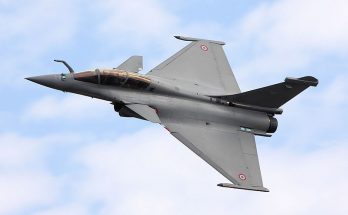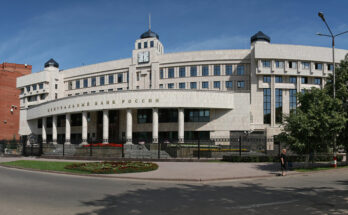With his aggressive speech on Monday, February 21, effectively nullifying the increasingly defunct Minsk accords and laying the groundwork for absorbing a large swathe of eastern Ukraine, Russian President Vladimir Putin has sparked the worst security crisis confronting Europe since the 1999 Kosovo War. Following his speech, Putin signed decrees recognizing the independence of the Kremlin-backed separatist regions of Donetsk and Luhansk. This was followed by the ordering of Russian troops into these two regions, ostensibly under the guise of “peacekeeping.”
Reaction from the West has been swift, with Germany’s government announcing it had halted approval of Russia’s Nord Stream 2 gas pipeline, the European Union announcing measures targeting 351 members of the Russian Parliament who voted to recognize the two breakaway regions, and the United States and United Kingdom leveling sanctions against Russian banks and oligarchs.
BREAKING: Biden announces Sanctions on #Russia
• VEB & Military banks
• Sanctions on Ru Sovereign debt
• Next Elites & Family members
• Says Russia poised to go further into #Ukraine, calls it invasion
• More US troops to Baltic states— Joyce Karam (@Joyce_Karam) February 22, 2022
This, according to officials, is merely a first tranche. More crippling, economically significant measures would be imposed in the event of a Russian attack on Ukrainian territory beyond the areas already controlled by separatist forces. Officials in Washington have mentioned possible next steps, including cutting Russia off from the international financial payments network (SWIFT) and imposing export controls.
Russia, for its part, has been preparing to absorb Western sanctions for years.
Already experienced with lower threshold sanctions undertaken by Washington and others in 2014 following its annexation of Crimea, Moscow has prepared for this moment by building up its foreign currency and gold reserves to record levels (over $600 billion by January, making them the fourth highest in the world). Just 16 percent of its foreign exchange reserves are now held in U.S. dollars, roughly commensurate with those held in Chinese renminbi.
Further, Russia is in the early stages of creating its own system of international payments as a means of circumventing the SWIFT financial messaging system, while also trimming its government budget and increasing its economic resilience against Western countermeasures by reducing reliance upon foreign loans and investments.
Bolstering trade with countries not directly tied to Western markets – such as China – is also part of the plan, as evidenced by the recent deal with Beijing whereby Russia will supply it with 100 million tons of coal in the coming years. This agreement followed an earlier one signed with India in November under which 40 million tons of Russian coal will be exported southward.
Meanwhile, the European Union continues to rely heavily upon Russia for natural gas imports, meaning one possible counter-effect in an economic war with Moscow could be higher energy prices for European nations.
None of this renders Russia sanction-proof, but it does enable Moscow to weather Western blowback better than in 2014. The question then becomes, how long could Moscow withstand tougher sanctions over a longer period of time?
Regardless, past sanctions proved a lackluster means of altering Russia’s behavior vis-à-vis its former Soviet “near abroad.” Instead, Moscow continues to conduct a compatriots (sootechestvenniki) policy approach that leaves any former Soviet republic with an ethnic Russian minority population vulnerable to interference by the Kremlin.
Therefore, what is happening in Ukraine is being watched very closely by countries that since 1991 have pivoted away from Moscow, including the Baltics, Georgia and even Moldova.
Dan Darling is Forecast International’s director of military and defense markets. In this role, Dan oversees a team of analysts tasked with covering everything from budgeting to weapons systems to defense electronics and military aerospace. Additionally, for over 17 years Dan has, at various times, authored the International Military Markets reports for Europe, Eurasia, the Middle East and the Asia-Pacific region.
Dan's work has been cited in Defense News, Real Clear Defense, Asian Military Review, Al Jazeera, and Financial Express, among others, and he has also contributed commentary to The Diplomat, The National Interest and World Politics Review. He has been quoted in Arabian Business, the Financial Times, Flight International, The New York Times, Bloomberg and National Defense Magazine.
In addition, Dan has made guest appearances on the online radio show Midrats and on The Media Line, as well as The Red Line Podcast, plus media appearances on France 24 and World Is One News (WION).




